2024 SDG 2 English
- 2.2.1 Campus food waste and tracking
- 2.2.2 Campus food waste
- 2.3.1 Student food insecurity and hunger
- 2.3.2 Students hunger interventions
- 2.3.3 Sustainable food choices on campus
- 2.3.4 Healthy and affordable food choices
- 2.3.5 Staff hunger interventions
- 2.5.1 Access to food security knowledge
- 2.5.2 Provide events for local farmers and food producers to connect and transfer knowledge
- 2.5.3 University access to local farmers and food producers
- 2.5.4 Prioritise purchase of products from local, sustainable sources
2.2.1 Campus food waste and tracking
The University’s campus restaurants employ different methods for food waste recycling. At the main campus, restaurant vendors collect food waste during meal times and then measure and transport it to a contracted waste management company. At the Gongguan and Linkou campuses, food waste is drained and collected by the New Taipei City Environmental Protection Bureau recycling trucks. The Health Center is responsible for monitoring food waste volumes, with annual updates for the main campus based on measurements by the contracted waste collector. Food waste averaged approximately 0.00115 metric tons per faculty and student in 2023.
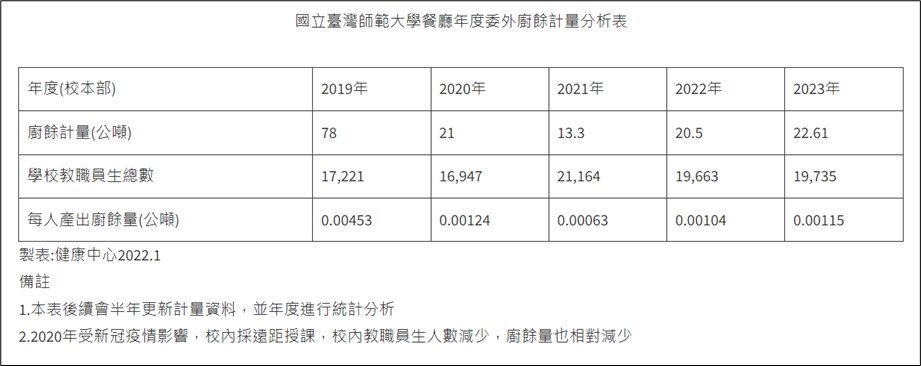
2.2.2 Campus food waste
Make the food waste produced by NTNU transparent.
The amount of food waste in 2023 is 0.00115 metric tons per staff and student.
2.3.1 Student food insecurity and hunger
The University provides medical, dietary, and nutrition consulting services.
The University attaches great importance to the health care and promotion of staff and students and has won the “Overall Outstanding School” award from the Ministry of Education’s Health Promotion Program: it cooperates with hospitals to provide staff and students with medical discounts and diagnostic and health care services; it also organizes publicity activities such as health promotion and nutrition, and posture control classes, provide individual consultation and other services to improve the health care and management capabilities of faculty and students. It offered comprehensive nutrition services and consultations, serving 32 people, and held school-wide nutrition and health promotion lectures on nutrition education and sustainable diet with 135 participants in 2023.
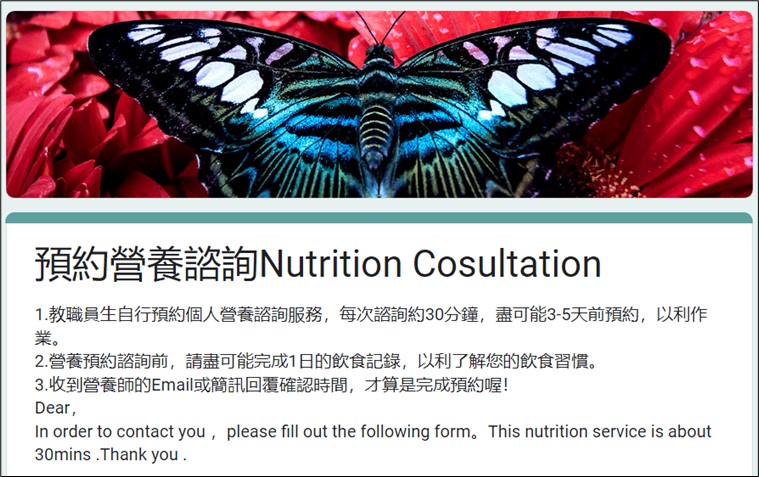
2.3.2 Students hunger interventions
Relevant actions to address the problem of student hunger.
1. Convenience stores at Family Mart on the NTNU campus offer a “Friendly dining time” to obtain food discounts. Students can purchase products 7 hours before expiry and enjoy a 30% discount. They can also use the Family Mart app to find “Friendly Dining time” to check products.
2. The University offers a Living Subsidy program to support economically and culturally disadvantaged students in overcoming hunger and improving their living conditions. 300-330 grants (150-200 in summer) are awarded each semester, providing each recipient with a monthly stipend of NT$6,000. Additionally, in 2023, 180 students received convenience store voucher subsidies totaling NT$180,000 to support their daily needs further.
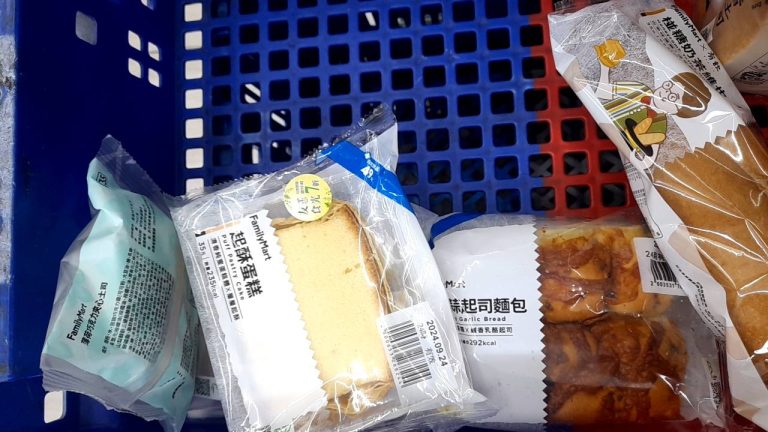
2.3.3 Sustainable food choices on campus
Make sure to have a variety of dietary choices.
NTNU regularly promotes “environmental sustainability,” “animal welfare,” and healthy food design in its training workshops for the contracted restaurant staff. Encourage all restaurants to provide simple vegetarian meals for staff and students. Also, set up a website for dining information around the campus, “NTNU Life Convenience,” and create a vegetarian restaurant map to promote vegetarian food.
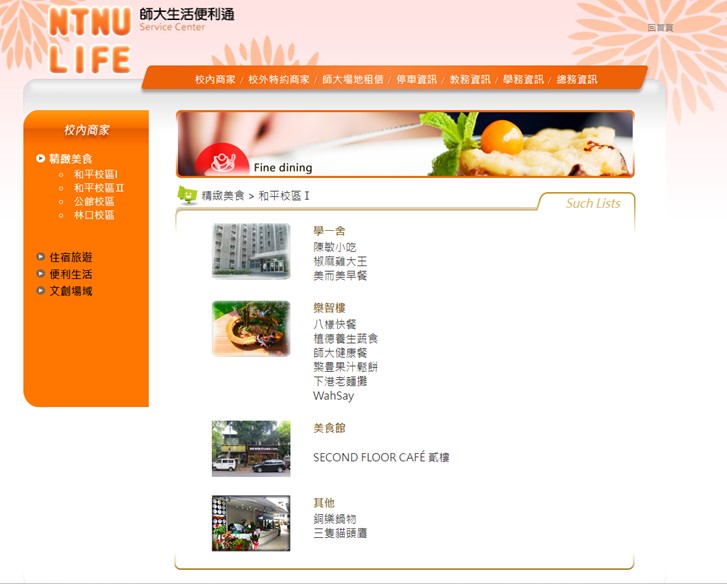
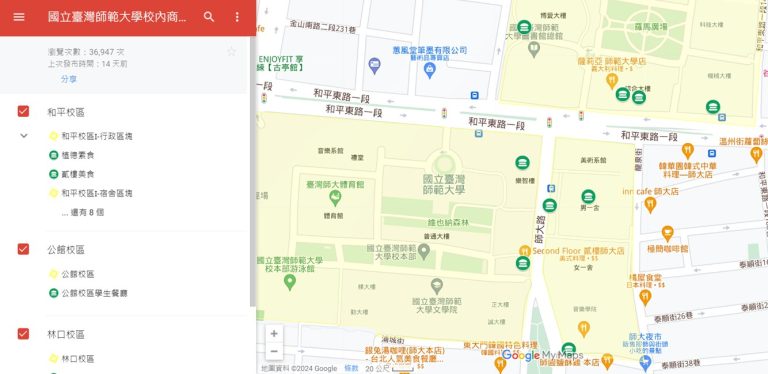
2.3.4 Healthy and affordable food choices
Ensure the safety and affordability of NTNU’s food.
1. NTNU provides healthy and affordable food choices for staff and students: In 2023, the Five-Point Food Safety Reform Policy’s total cost was NT$157,200, and random inspections of pesticide residues on food in restaurants to ensure safety and quality. In addition, NTNU also complies with the Catering Nutrition and Food Safety and Hygiene: Campus Food Incident Handling Standard Instructions published by the Ministry of Education. To provide students with hygienic, safe, and nutritionally balanced meals, the University should supervise on-campus catering manufacturers to carefully select the quality of ingredients and choose products that comply with food hygiene and safety standards.
2. The Undergraduate Program of Nutrition Science holds a nutrition week activity. Students in the program prepare healthy and delicious foods based on professional knowledge, such as nutrients and calories, for staff and students on campus.
3. The University collaborates with on-campus and nearby restaurants to offer discount programs for faculty, staff, and students, providing more affordable and healthy food options.
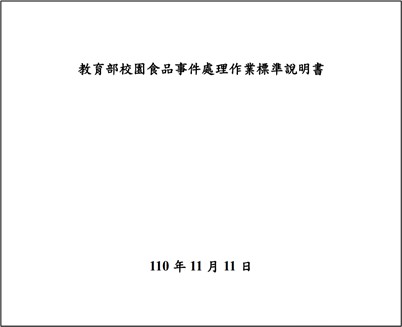
2.3.5 Staff hunger interventions
In addition to resolve to the hunger issue among faculty and staff, the University also further deals with the issues of diet and food banks from the perspective of the University’s social responsibilities.
1. Convenience stores at Family Mart on the NTNU campus offer a “Friendly dining time” to obtain food discounts. Students can purchase products 7 hours before expiry and enjoy a 30% discount. They can also use the Family Mart app to find “Friendly Dining time” to check products.

2. NTNU’s Prof. conduct research related to food banks.
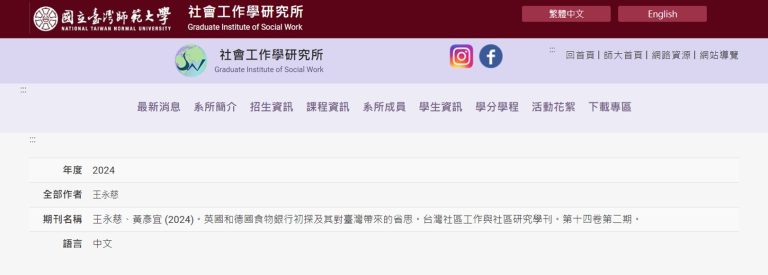
3. On October 18, 2023, the Undergraduate Programs of Nutrition Science and the Taiwan National Food Bank Association held a nutrition education promotion event at Nanao Elementary School in Yilan. This activity targeted the elementary school basketball team students. Through drama performances and nutritional games, the program taught students about a balanced diet, plate arrangement, nutritional key points for growing taller and gaining muscle, and the calorie consumption of junk food so that students could learn about it in a relaxed and interesting way.
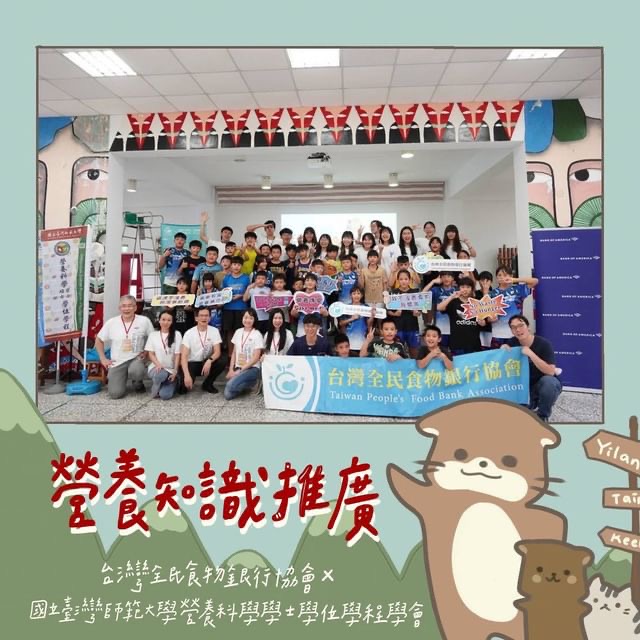
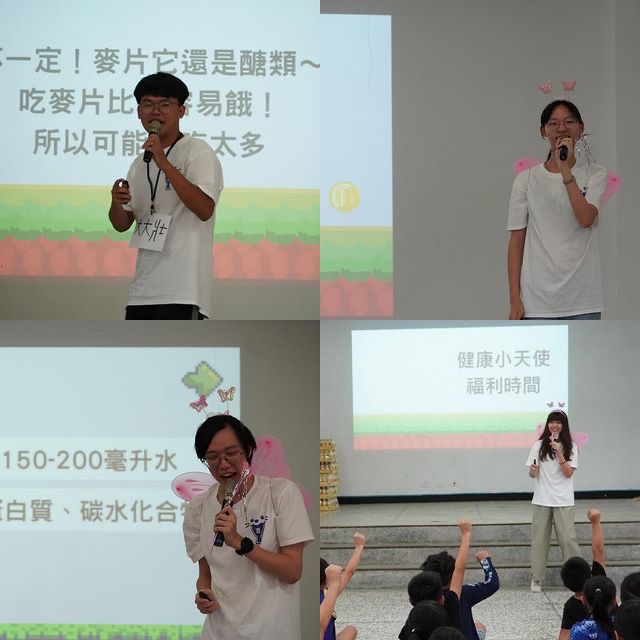
The Taiwan National Food Bank Association and the Undergraduate Programs of Nutrition Science at NTNU held a nutrition education promotion.
2.5.1 Access to food security knowledge
Professor Lin Ru-Ping from the Department of Child And Family Science presented a keynote speech titled The Development of Food and Agricultural Education and Green Care: Strategies for Integrating Urban Agriculture at the Ministry of Agriculture’s 2023 Symposium on Urban Agriculture Techniques and Food and Agricultural Education Practices. Her presentation explored the multifunctional role of agriculture and its integration with urban farming, food and agricultural education, and green care, offering new insights for participants, including ministry officials and farmers, on the evolving role of agriculture. Held at the Taoyuan Agricultural Research and Extension Station, the symposium fostered collaboration between agricultural institutions and schools, advancing food and agricultural education and sustainable agriculture.
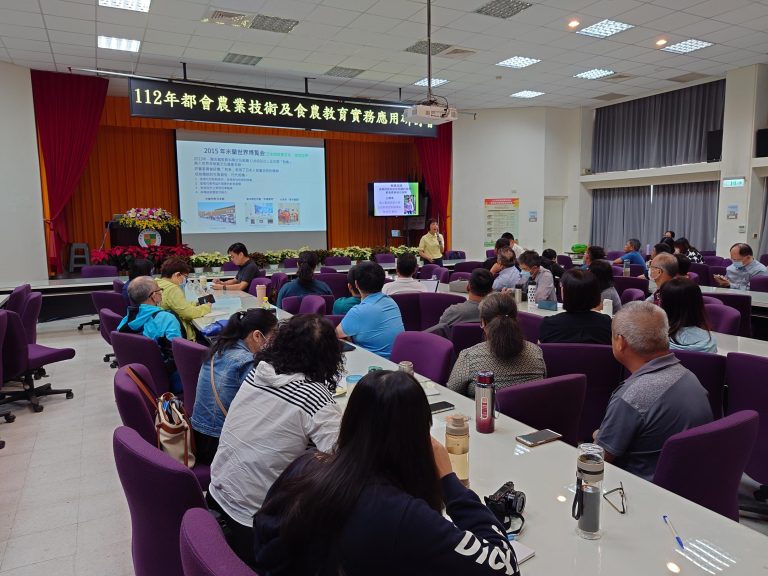
2.5.2 Provide events for local farmers and food producers to connect and transfer knowledge
The NTNU is Building partnerships with farmers through local food and agriculture education.
The food and agriculture education and Sustainable Development Workshop held by the Sustainability Development office in NTNU on April 17, 2023, was held at the Sancai Ganoderma Ecological Farm in Shiding District. This place has a lot of natural resources. The workshop brings together local agricultural extension personnel, local community residents, elementary and junior high school principals, and teachers, experts in the fields of environmental education and sustainable development education to share issues such as farm production, environmentally friendly and healthy diet, and to design food and agriculture education courses, such as the history of coal mining settlements, firefly ecological protection, and mushroom cultivation to promote cooperation and learning between local communities and schools.
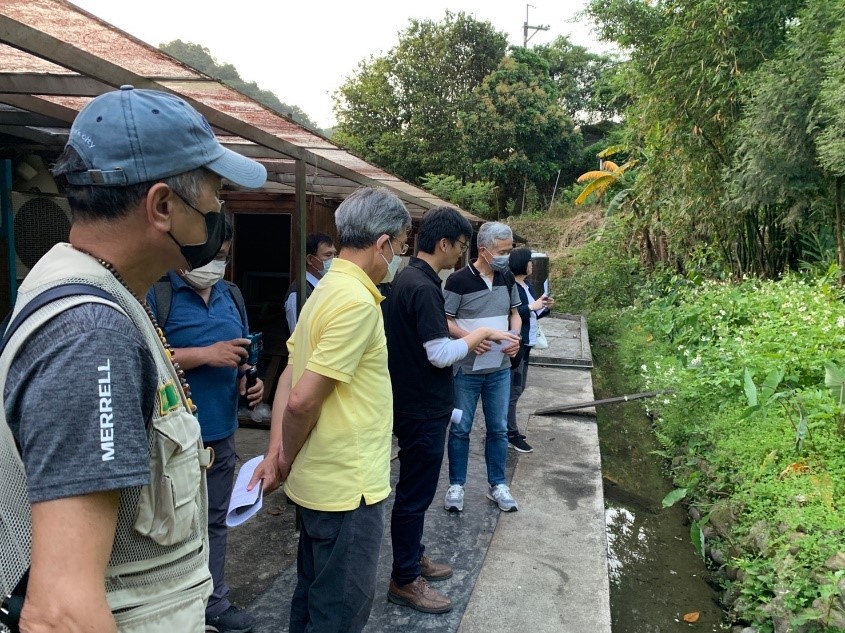
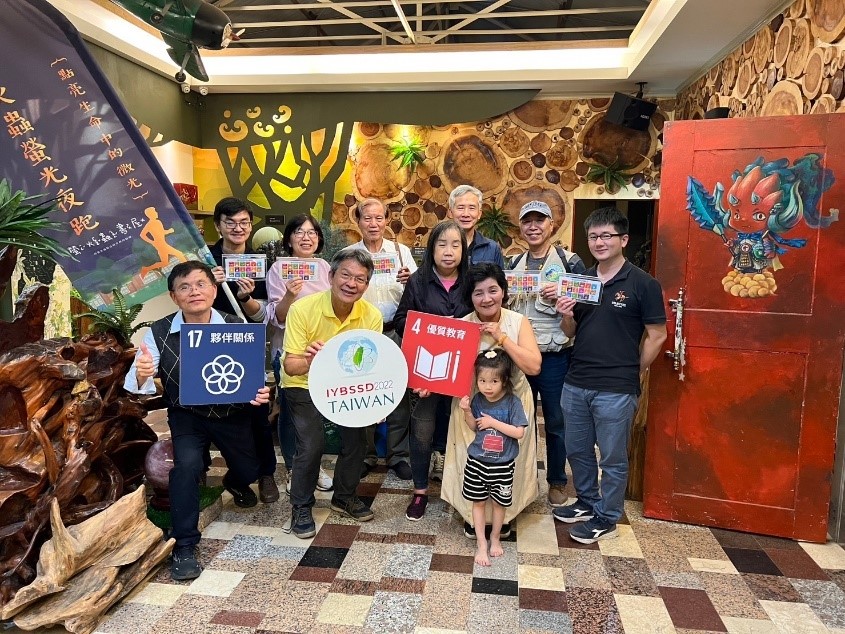
The Workshop held by the Sustainability Development office in NTNU is about food and agriculture education and Sustainable Development.
2.5.3 University access to local farmers and food producers
The Student Association collaborated with the Sustainability Task Force to host a two-day ‘Warm Sun Festival’ on campus to promote sustainability. The market featured local vendors aligned with sustainable values, including small-scale farmers, plant-based food providers, and gluten-free cuisine vendors. By utilizing open campus spaces, the event sought to increase awareness of sustainable food practices among students and the public, encouraging more significant support for local farmers and sustainable products.

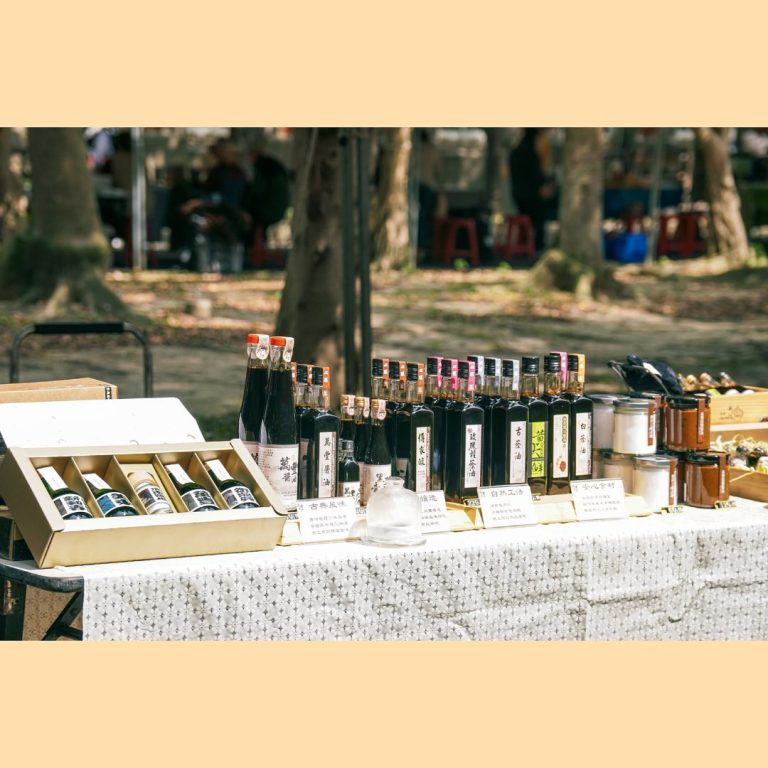
2.5.4 Prioritise purchase of products from local, sustainable sources
1. The promotion of local food ingredients is stipulated in the contract (Catering Nutrition and Food Safety and Hygiene). It should prioritize agricultural products with traceability systems promoted by the Ministry of Agriculture, such as the Taiwan Organic Agricultural Products Label, the Production and Sales History Agricultural Products Label, the Taiwan Excellent Agricultural Products Label, and the traceable agricultural products with a stamp or a barcode marking the production of agricultural (livestock, aquatic) products.
2. In 2022, Camo Café, located on the University campus, received Green Restaurant certification, signifying its commitment to low-carbon and sustainable practices in ingredient selection, operations, and environmental design. Beginning in 2023, the Environmental Protection Administration rebranded Green Restaurants as ‘Eco-Friendly Restaurants,’ promoting green procurement, waste reduction at the source, and food conservation.


